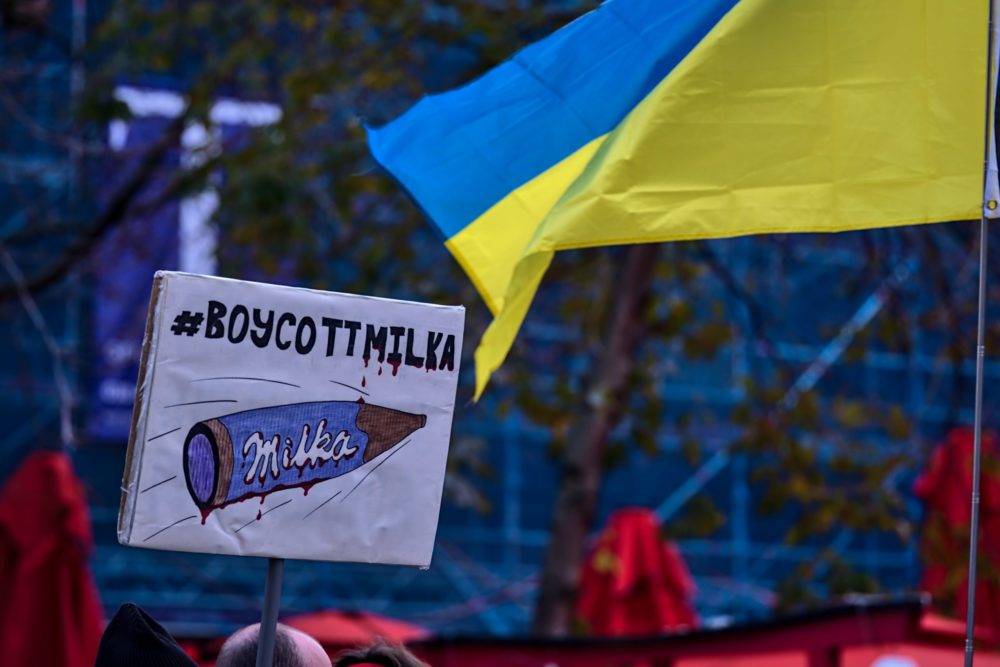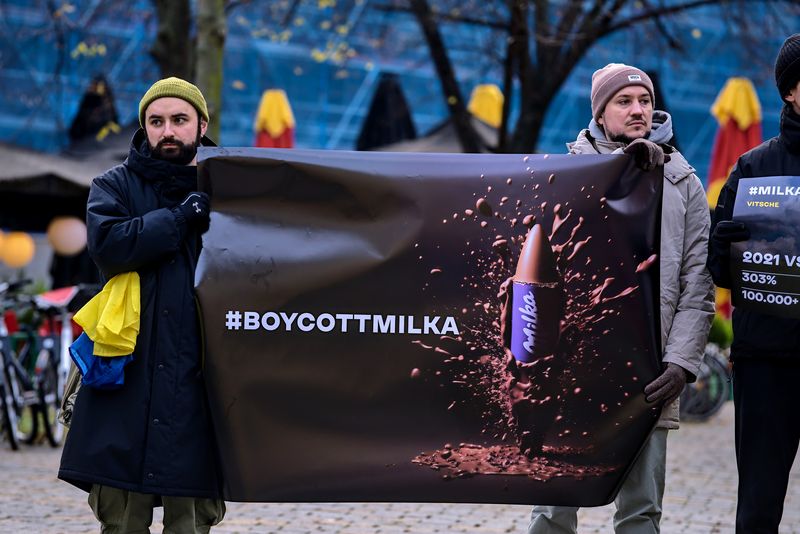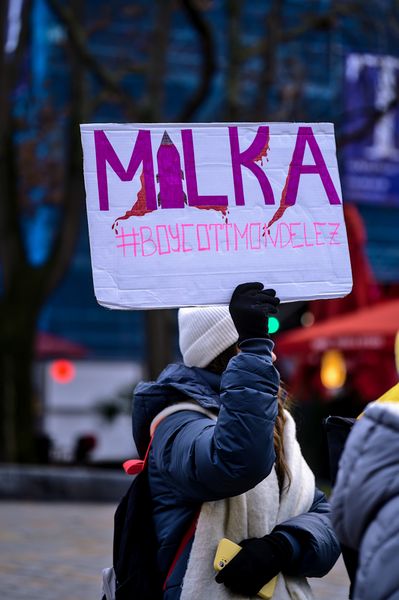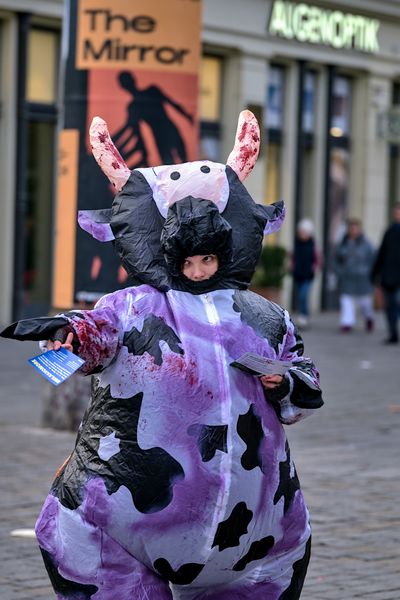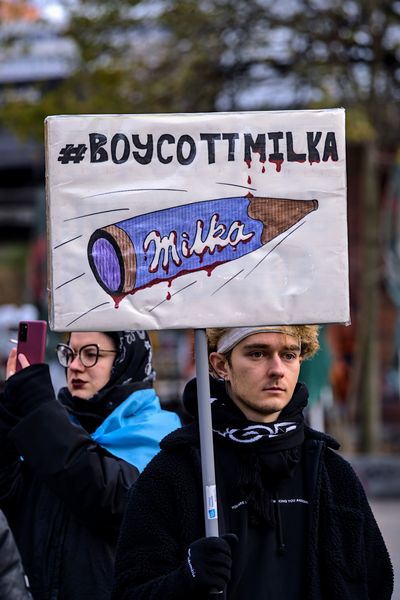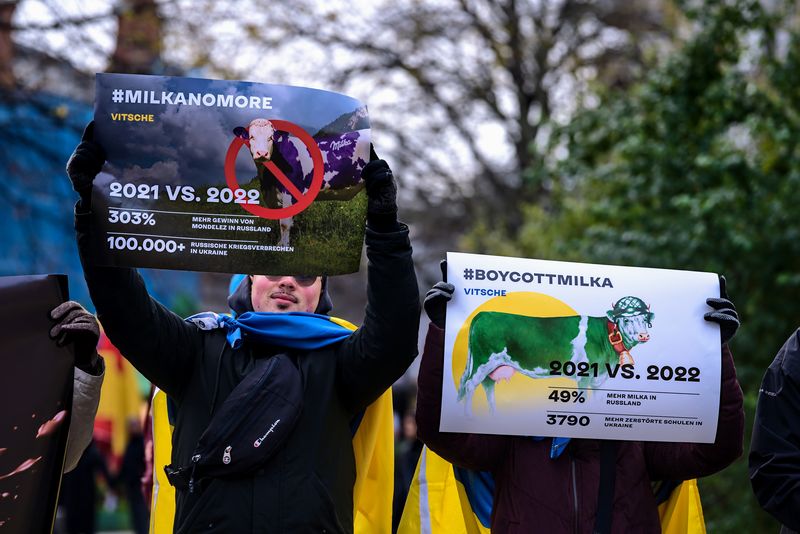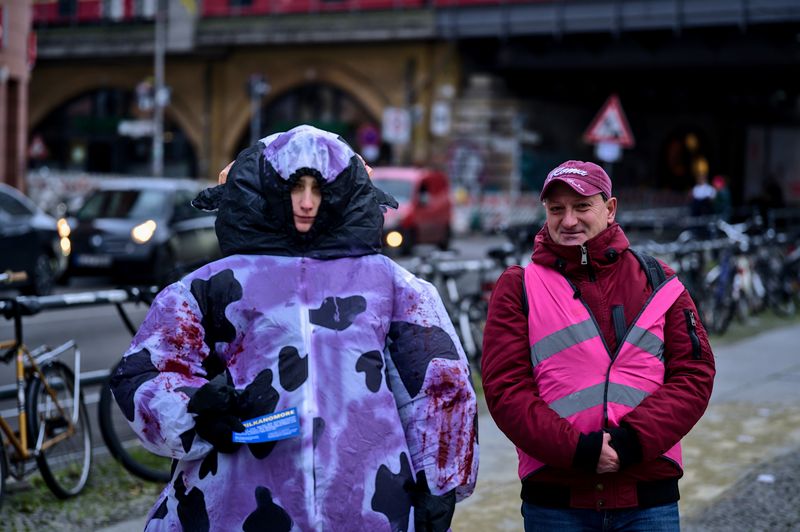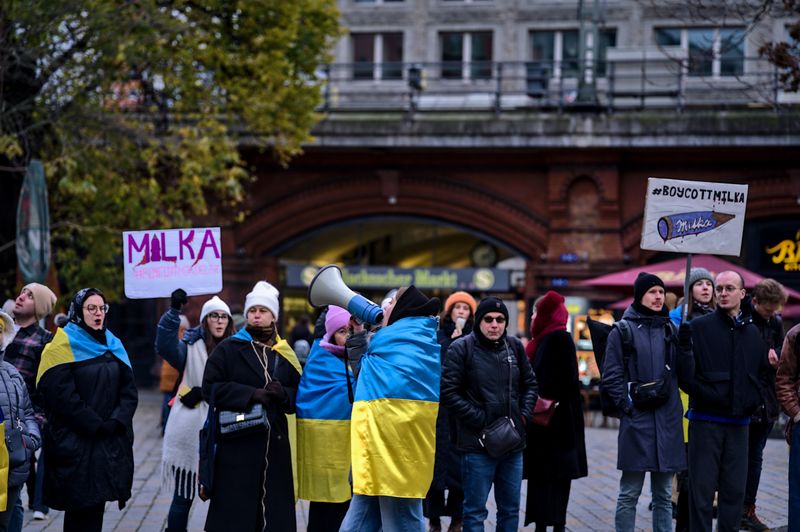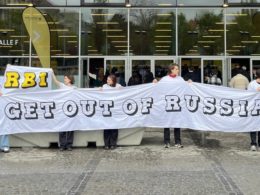Mondelez International is facing growing international protests over its profitable presence in Russia, almost two years since its invasion of Ukraine. Inspired by the recent Chicago-based action, B4Ukraine Coalition member Vitsche launched their own campaign last Sunday in Berlin.
Milka chocolates are among the most popular treats in Germany, especially during Christmas. Yet many Germans do not know that their beloved treats are a product of an American snacking giant, which still pays the Kremlin tens of millions in taxes.
German news agency RND and top-selling Bild newspaper reported on the Berlin action, which gathered participants around a single message #BoycottMilka.
“A bar of Milka chocolate is not as innocent as one might think,” said Vitsche activists. “Not a single cent should go to the budget of the aggressor state.”
Mondelez claims that the cookies and chocolates it sells in Russia are part of a “normal diet,” implying the essentiality of its products and citing it as a reason to stay. However, such arguments provoke criticism and irony: “Sounds like a cowardly alibi,” Bild commented.
Milka CEO Dirk Van de Put has also cited the company’s support for over 30,000 local farmers in Russia as a reason to remain. However, Reuters reported that Mondelez had increased deliveries of Milka chocolate to Russia from third countries by more than 130% between April 2022 and March of this year. This barely resembles any support for local farmers!
Not buying Mondelez’s arguments, the Ukrainian government’s National Agency on Corruption Prevention (NACP) designated the firm an “international sponsor of war” in May. According to the agency, Mondelez increased its profit in Russia last year, despite its promise to “scale back” its business in the aggressor state.
The designation has led to a powerful wave of Scandinavian B2B boycotts, while the company has once again refused to commit to leaving Russia. Instead, it issued a statement on June 15th announcing an intention to make its business in Russia “stand-alone with a self-sufficient supply chain by the end of this year.”
According to B4Ukraine’s internal sources, the company’s leadership has been reluctant to discuss the future of its Russian business openly with its employees, keeping it a top secret. B4Ukraine has addressed members of the board of directors, namely Mr. Lewis Booth, Ms. Jane Nielsen, Ms. Anindita Mukherjee, and Mr Michael Todman, but has never received any responses — similar to the letter sent to Mondelez’s CEO Van de Put.
According to the Kyiv School of Economics, Mondelez made more than $1.46 billion in sales in Russia last year and paid around $62 million in profit taxes to the state ruled by wanted war criminals. Kyiv warned that Russia was investing this money, among other things, in missiles that kill Ukrainian children.
B4Ukraine is closely watching Mondelez International’s actions and whether the company honors its commitment to make its Russian business “stand-alone.” What remains unknown are the critical details of such an arrangement.
Related:
- Work.ua CEO: 1.5 years enough time for brands to exit, now we cut ties
- Ukrainian app shows which companies still operate in Russia
- Procter & Gamble continues sponsoring Russia’s war




